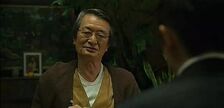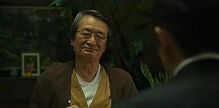In the Edo period of Japan, a samurai named Tashiro Jinki wrote a collection of Analects called "Ye Yin Wen Shu" in 7 years. The content of this book involves a large number of abdomen, revenge, and unique concepts of death. , There is a strong worship for the beauty of death between the lines. Later generations proved that this unique view of death shown in "Ye Yin Wen Shu" is precisely the essence of the so-called "Bushido".
The Japanese attitude towards death is always incomprehensible to the Chinese.
The old Chinese were full of extreme fear of death and believed that death was desperate and full of endless suffering. Therefore, the secular life often showed two completely different attitudes to life: some people kept their own lives, and hoped to "accumulate virtue" in the earth to avoid After death, he went to the Yin Cao Jifu to suffer. Others are arrogant and extravagant, trying their best to fill their endless desires, and even use all means to extend their "yang life". The most prominent example is those ancient emperors who seek elixir. People with such different attitudes towards life often have obvious class divisions. But the ultimate fear of death is the common source of both.
It is difficult to make a choice between two different cultures because we know that the fear of death does not come from the uniqueness of our culture itself, but from the nature of human beings. It’s just that it’s hard to find an ingredient in our culture, which can help mortals overcome this fear. But the Yamato nation has found a relatively effective method.
And this method is the unique view of death in "Bushido."
Generally speaking, human beings are accustomed to avoiding death, but Bushido is to face death directly, think about how to die, and is committed to realizing the "aesthetic value" emanating from the moment of death. This kind of death in the aesthetic sense is praised by them as the so-called "beauty of falling flowers." Looking at death aesthetically, the fear that those cruel and bloody death scenes bring to people will be diluted to the greatest extent, and sublimated into a kind of extreme beauty.
It may sound abnormal, but this is indeed the core part of their culture with unique charm. The Japanese guardianship and inheritance of the core part of their national culture is so determined that we, as neighbors, simply cannot imagine.
In this era, everything we can come into contact with comes from the cultural products of that island country, which can fully illustrate this point. The film works are even more intuitive.
"The Encouragement", which won the 81st Oscar Award for Best Foreign Language Film, is a hot topic recently. This film is now attracting a wider range of attention, largely due to the award it won. However, when people talk about the theme of death in the film, they often ignore the long tradition that this theme originally followed in Japanese movies. In this tradition, "Encouragement Division" is actually not one of the most prominent representatives.
Based on the topic discussed in the article, the analysis and discussion of the film is only based on the "unique view of death under an aesthetic attitude". Demonstrate the value that could have been demonstrated in depth or more uniquely. (In the level of technical application, it is also very plain.) And the victory of "The Enemy" should not be attributed to the victory of the film itself, perhaps to a greater extent the victory of the unique cultural charm of the Yamato nation. The Western world's obsession with this enigmatic national cultural trait, which is difficult to conceal, makes this originally mediocre work decorated with a dazzling halo.
"Death is not the end, but a door, which symbolizes the beginning of another journey." We seem to have known each other in this line of "The Enchanter". There are many similar monologues in Murakami's novels, such as: "Death is not alive." Opposite, as a part of life." In the film "Into", "death" and "life" are transformed into each other, and the naive materialism view of life and death is also in "Red Beard", "Narayama Festival Kao" and other films. The same line.
But these are not the most glamorous elements in Yamato's unique view of death.
View more about Departures reviews









